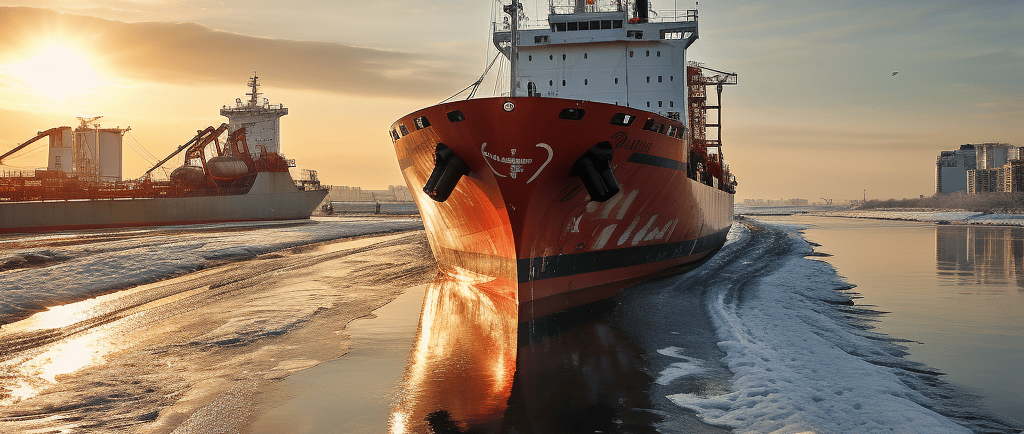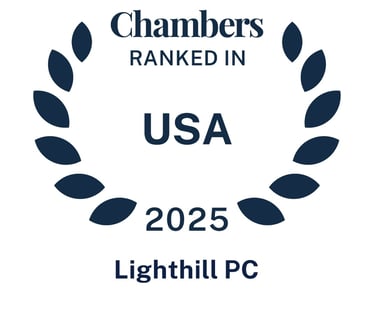Maritime Services for Russian-Origin Crude Oil
U.S. sanctions update


In light of geopolitical developments and increased expansion of a new “shadow trade” in crude oil and petroleum products of Russian-origin, on October 12, 2023, the Price Cap Coalition (Coalition), comprised of the G7, European Union, and Australia, issued a Maritime Safety Advisory to public and private sector maritime industry stakeholders[1] regarding best practices to prevent sanctions evasion.
Price Cap Coalition Policy
The price cap policy was designed to reduce revenues for Russian-origin crude oil and petroleum products to limit Russia’s ability to finance its war in Ukraine, while ensuring global security of supply.
Under the price cap policy, Coalition-based companies may continue providing maritime services for Russian-origin crude oil and petroleum products, so long as the products are sold at or below the price cap levels.
OFAC Price Cap Determinations
Price Caps
There are three price caps to be aware of when providing maritime services for Russian-origin crude oil and petroleum products. The crude oil price cap took effect in December 2022 with a cap on Russian crude oil at $60 per barrel. The petroleum products price caps took effect in February 2023 with a “Discount to Crude” cap at $45 per barrel, and a “Premium to Crude” cap at $100 per barrel.
Maritime Services
OFAC had issued two parallel determinations implementing the maritime services policies for Russian-origin crude oil and for petroleum products.[2] Pursuant to these determinations, “U.S. persons” are restricted from providing covered services[3] for transactions that evade the relevant price cap levels. Such covered services include:
Trading and commodities brokering, financing, shipping, insurance, including reinsurance and protection and indemnity, flagging, and customs brokering. See OFAC Guidance on Implementation of the Price Cap Policy (Feb. 2023) at 2.
Maritime Safety Advisory
The Advisory notes that the dynamic geopolitical landscape caused a shift in trade routes, broadened the scope of service providers, and resulted in a partial loss of transaction visibility. Consequently, a new phenomenon termed “shadow trade” has surfaced, marked by high-risk shipping practices involving sanctioned individuals and entities or restricted cargo. Some of the key factors suggestive of heightened risks include the following:
Maritime Safety and Marine Environment - Use of older vessels with non-compliant flag state registrations and / or missing regulatory certificates pursuant to international conventions, including maintenance or safety standards.
Insurance and Economic - Reliance on “unproven” P&I insurance providers operating in jurisdictions with little regulatory oversight or transparency.
Reputational, Logistical, and Financial - Concealment of ownership structures, cargo-origin, and activity, including through disabled AIS systems.
Best Practices Recommendations
The Coalition provides maritime industry stakeholders some of the following best practices recommendations:
Conduct sufficient due diligence to determine relevant risks and require continuous and appropriate maritime insurance coverage for the entire voyage.
Require receipt of classification for vessel fitness from IACS member classification societies.
Promote and / or require continuous AIS broadcasting consistent with SOLAS.
Conduct enhanced due diligence, including required notifications by Annex I of MARPOL, of ship-to-ship transfers.
Request associated shipping and ancillary costs including through contract revision, as needed, to reveal if inflated costs are concealing oil purchases above the price cap.
[1] “Maritime industry stakeholders” are referenced to include “port authorities, other government bodies, ship owners, managers, operators, brokers, ship chandlers, flag registries, port operators, shipping companies, freight forwarders, classification service providers, and insurance and reinsurance companies.” See Advisory at 1.
[2] These determinations were issued pursuant to Executive Order 14071, “Prohibiting New Investment in and Certain Services to the Russian Federation in Response to Continued Russian Federation Aggression” (April 2022) (“E.O. 14071”).




